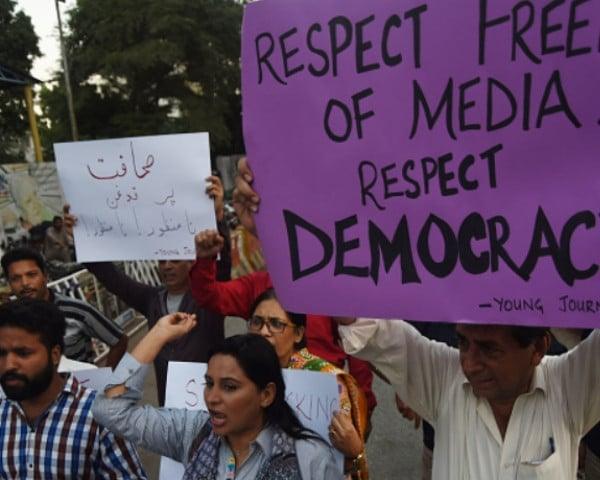Journalists’ organizations in Pakistan have strongly opposed recent amendments to the Prevention of Electronic Crimes Act (PECA), expressing concerns over the lack of consultation and its implications for press freedom.
A joint action committee, comprising Pakistan Federal Union of Journalists (PFUJ), All Pakistan Newspapers Society (APNS), Pakistan Council of Newspaper Editors (CPNE), Association of Editors and Directors of Electronic Media Information (AMEND) and the Association of Broadcasters of Pakistan. (PBA), issued a statement rejecting the amendments and demanding their immediate withdrawal.
The committee highlighted that the changes to the PECA law were introduced without consulting media stakeholders, a decision it described as unacceptable.
The PFUJ separately called the amendments misleading, with President Afzal Butt and General Secretary Arshad Ansari calling them unnecessary and a violation of constitutional rights, saying the amendments were a calculated effort to suppress media, social media platforms and the journalistic community as a whole.
In its statement, the Karachi Press Club (KPC) also expressed strong reservations, condemning the amendments as a threat to freedom of expression.
Club President Fazil Jamili and Secretary Sohail Afzal Khan highlighted that Article 19 of the Constitution of Pakistan guarantees every citizen the right to freedom of expression.
They criticized the government for not consulting stakeholders before adopting the amendments and demanded the law be repealed.
The KPC proposed that the government empower mainstream media to report accurate information in real time and combat misinformation on social media through inclusive legislation involving all stakeholders.
The recently passed amendments, presented to the National Assembly as part of a supplementary agenda, propose the creation of a Digital Rights Protection Authority (DRPA) with the power to remove online content, restrict the access to prohibited material and to penalize people sharing this content.
The amendments redefine “social media platforms” to include tools and software used to access them and expand the scope of the law to websites, applications and communication channels.
Additionally, the amendments suggest disbanding the Cybercrime wing of the FIA and replacing it with tougher sanctions. For example, sharing deleted documents from parliamentary or provincial assemblies on social media could result in up to three years’ imprisonment and a fine of 2 million rupees.
Journalists protested the bill when it was presented to the National Assembly, walking out of the press gallery in defiance.
The CPK and other organizations called for the immediate repeal of the “black law” and announced their intention to decide their future course of action through consultations.
The amendments sparked significant backlash, with critics calling them an attack on press freedom and freedom of expression, urging the government to involve media and civil society representatives before implementing any legislation affecting digital and press rights.




